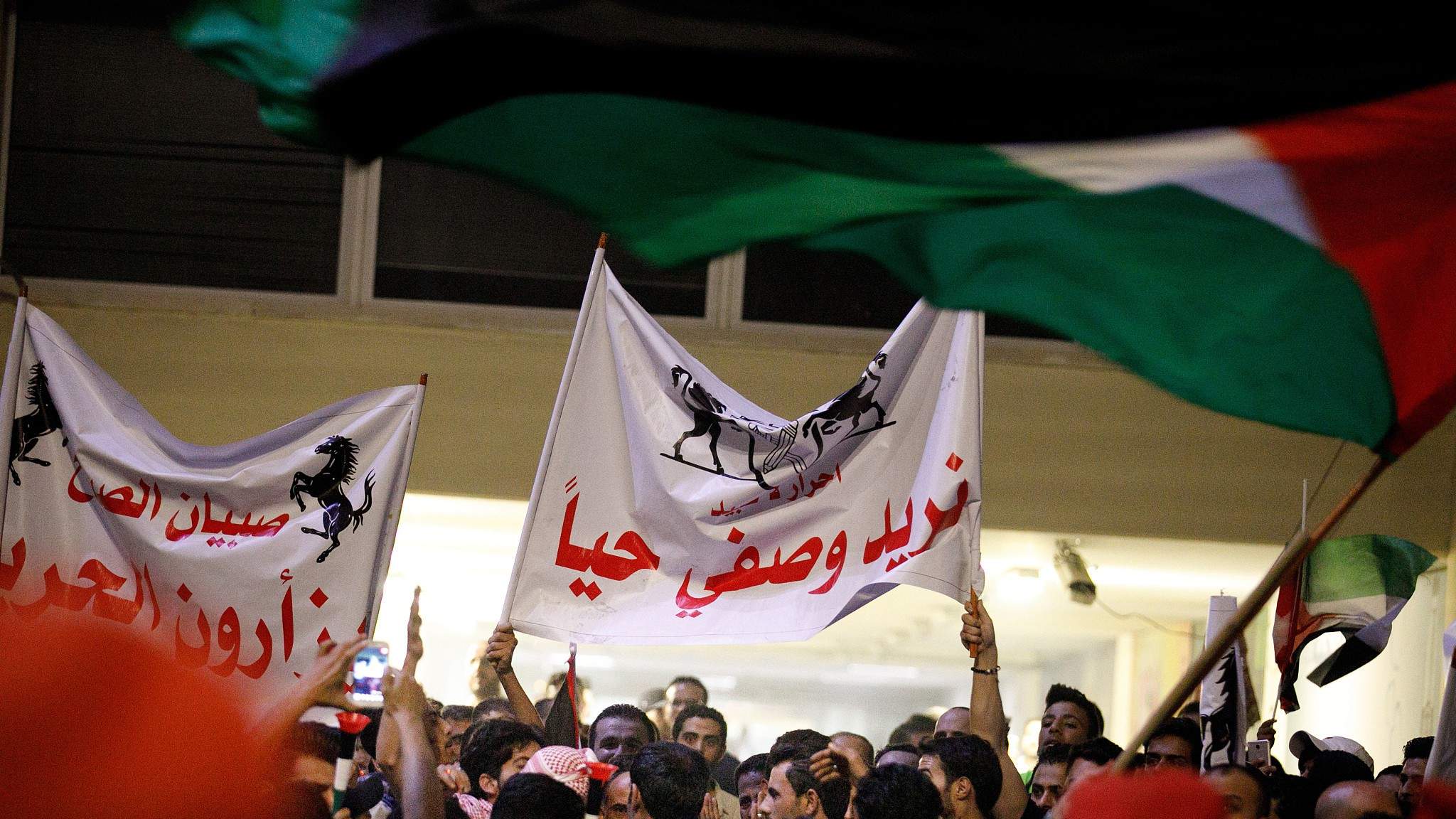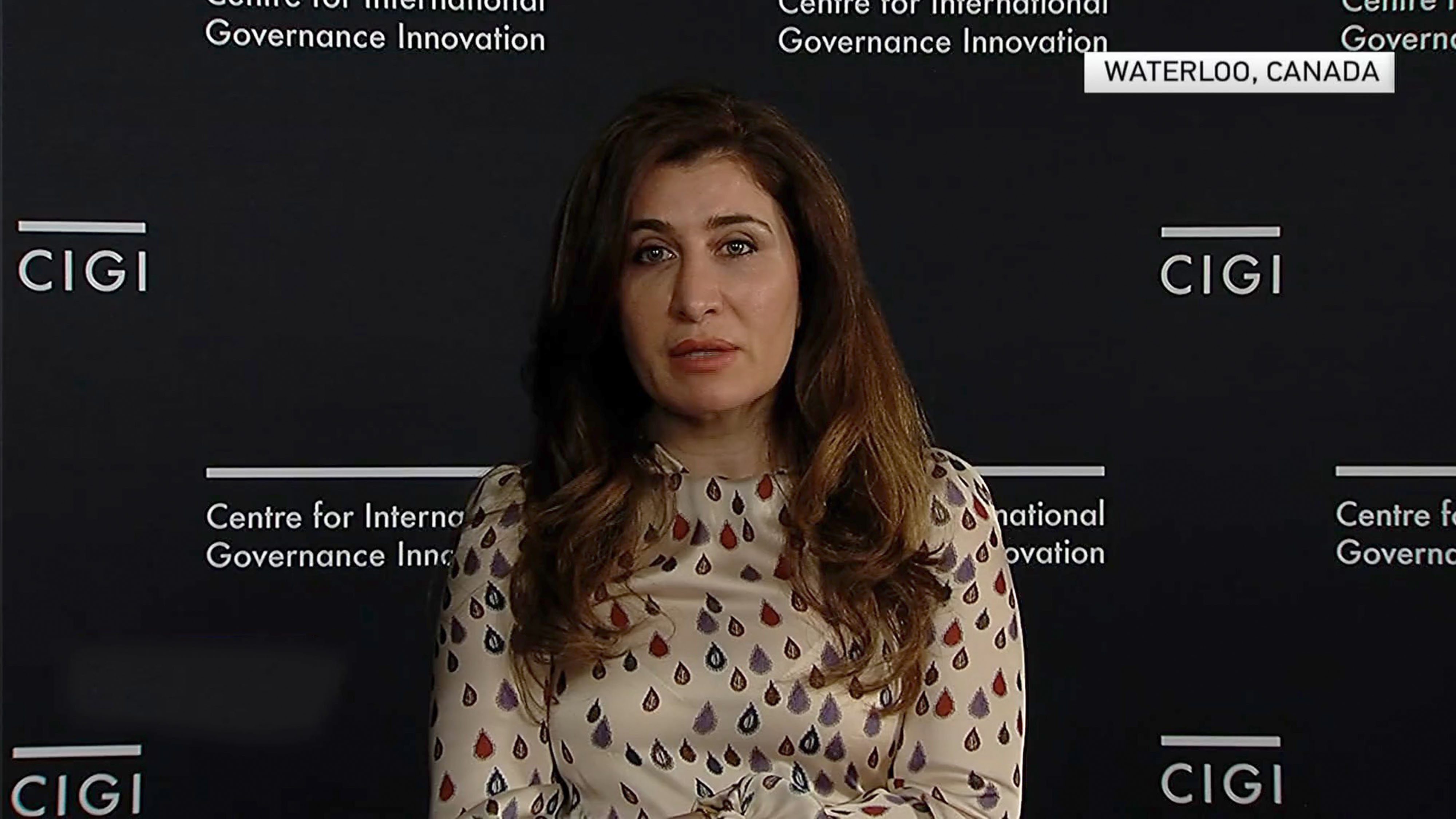
Opinions
10:39, 08-Jun-2018
The Heat: A new prime minister might not solve the economic crisis in Jordan
CGTN's The Heat

Protests over the past week in Jordan over price rises, subsidy cuts and a controversial plan to raise income tax have rocked the nation, bringing down the country’s Prime Minister Hani al-Mulki and his cabinet.
These protests have been the largest in Jordan for years. After the resignation of Mulki, Jordan's King Abdullah II appointed a new prime minister who would form a new government.
However, the move failed to calm the public anger. On Wednesday, protesters took to the streets again.
Protests are not new to Jordan, but the recent demonstrations might be looked at differently.
According to Rana Sweis, a journalist and author of the upcoming book “Voices of Jordan,” the new tax reform bill was just the spark that lit the fuse, but the protests were pent-up grievances that have arisen in the past years due to Jordan’s bad economic policies. She also said the demonstrations were a grassroots movement not affiliated with any political party, and most of the protesters consisted of younger generations.
People’s wrath never rains, it pours. A new prime minister who does the same thing might not be able to solve the problems in Jordan, said Hassan Barari, a professor of Middle Eastern politics at the University of Jordan and a columnist with the Jordan Times. The Jordanians need a less self-glorifying government which offers communications and gives its people more choices, rather than simply taking money out of their thin pockets but not making sure the services commensurate with what is being paid.
“The grievances of people are deeper than that,” Barari said. “It’s about the policies themselves. I think the king and the new prime minister need to rethink the whole economic approach, and also to start a political reform in Jordan.”
Jordan received more than 700 million US dollars from the IMF in 2016, and the new tax reform bill is backed by the IMF. Bessma Momani, an analyst on the Middle East and the global economy and a professor of political science at the University of Waterloo, said Jordan has been too reliant on foreign aid and now it’s paying the debt.
01:22

The IMF wants to safeguard its resources to get paid back quickly. However, from the standpoint of Jordan, paying the debt is never an easy thing to do, and the tax reform is never a proper approach to solving this problem in the long run. Momani agreed with Barari’s opinion, that the country needs an economic reform, not just a new face in the office.
“The structure of the economy in Jordan is frankly not productive,” Momani said. “There isn’t a lot of enormous investment in productive inclusive growth that employs people. Instead it is reliant on a service industry, speculation, real estate and property.”
In addition to Jordan economy’s low productivity, the overvalued currency rate has made Jordan an expensive option for both tourists and foreign investors, and right now the Gulf countries are having their own problems to deal with, so Jordan has been left alone with its own, Sweis said.
King Abdullah II is also aware of the economic and regional changes. He tweeted that “the closure of traditional market for Jordan’s exports, and the high cost of securing our borders have been and still are the main reasons for the difficult economic conditions we are facing.” In another tweet, he claimed that “international aid to Jordan has dropped despite the burden we shoulder to host Syrian refugees.”
Mamoun Abu Nowar, a security and strategic analyst and a retired general with the Jordanian Air Force, said that Jordan has to act very quickly to deal with the outside players since the Jordanians have been hurting badly.
“We need to be open to the new alliance or switch alliances,” Nowar said. “And we need to do all these reforms to get back on track.”
The Heat with Anand Naidoo is a 30-minute political talk show on CGTN. It airs weekdays at 7:00 a.m. BJT and 7:00 p.m. Eastern in the United States.

SITEMAP
Copyright © 2018 CGTN. Beijing ICP prepared NO.16065310-3
Copyright © 2018 CGTN. Beijing ICP prepared NO.16065310-3